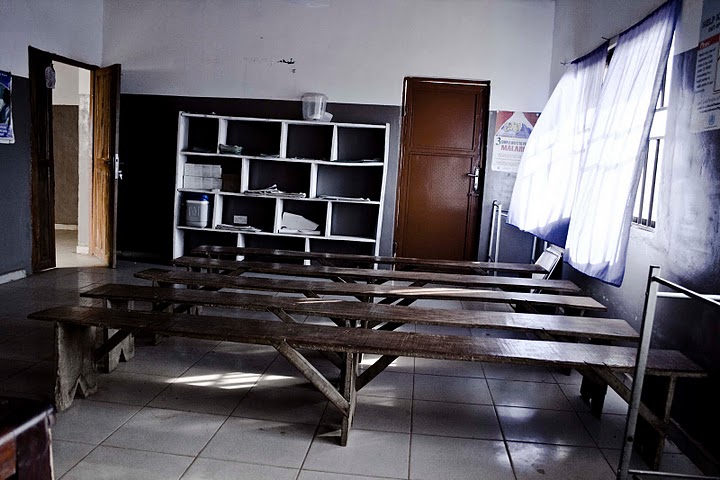I am sitting in my friend’s living room in Lagos in mid-October. Her boisterous young sons occasionally tear themselves away from the cartoons they are watching on television to interrupt our conversation. She is telling me about her latest shift in the Children Emergency Room at the Lagos University Teaching Hospital, where she works as a doctor. The hospital is owned by the Federal Government, and so has remained open in spite of the doctors’ strike that has paralyzed activities in the Lagos State Government owned hospitals. As the only public tertiary institution open in Lagos, they are bearing the brunt of the increased workload- stretched to full capacity. In a soft voice, she tells me of having to turn children away on virtually every shift since the strike started; children she and her colleagues know will die because there are no facilities with comparable expertise open in Lagos. I ponder the enormity of what she is telling me.
Only a few days before this conversation, I was reading a report from the Bill and Melinda Gates Foundation. The strap line at the top of the page caught my eye- the Foundation’s motto- Every human life has equal value. I ponder this phrase again, as I make my way home, watching the hustling and bustling in the streets of Lagos- the sleek limousines and towering jeeps that hog the road, the noise and clamour of the markets and street traders; the gaily dressed families on their way home from church- and I am forced to conclude that the phrase carries no weight in Nigeria.
If the lives of those children dying every day had ANY value, there would be an outcry in Lagos. That there hasn’t been an outcry is an indictment on us all- doctors, politicians, bloggers, journalists, activists and the ordinary man and woman on the street,.
The issue at stake (as I understand it) is the implementation of a new pay package for doctors agreed at Federal level. The Lagos State government argues that it was not privy to the negotiations and so should not be held to ransom to implement a package they had no hand in agreeing. In any case, they add, they cannot unilaterally implement the new package without due regard to public service procedures which require an across the board review before making such a major change to the budget.
The Association of Resident Doctors counters that other states and the Federal Government have implemented the new pay package and that the state government can well afford to implement the package given the huge sums that the State legislators earn. In response to the question of due process, they cite the buying of new official vehicles for judges as an example where expediency trumped due process.
And so the stalemate continues, and the children whose lives have no value continue to die.
This shameful standoff came to my mind again on Saturday, when one of the speakers at the Partnership for Nigerian Health conference mentioned that University College Hospital Ibadan has a monthly wage bill of 800 million naira. It does not take an expert in management to work out that this is a completely unsustainable burden.
The obvious key to resolving the impasse is dialogue. The Lagos State Government should lay bare the state’s finances and ask the doctors for suggestions on how the implementation of the new structure could be realistically implemented. The doctors would also need to put forward credible alternatives for how to meet the costs of implementing the new package-will they increase productivity? Should there be job cuts?
Focusing merely on getting the new package implemented for doctors will not work- what happens when other health workers go on a retaliatory strike demanding even more?
It’s time for the doctors to show leadership and present a credible plan that reflects the broad interest of the population that they serve. And it’s time for the state government to show leadership and engage the doctors in planning and budgeting for the health sector.
And while I appreciate the doctors’ position, having been in that position before and to my regret not following the advice that I am putting forward now, I urge them to put those children first and demonstrate that their lives have some, if not equal value, remembering our Hippocratic Oath- the wellbeing of my patients will be my FIRST consideration.
For the politicians,a situation where they continuously appropriate outrageously huge salaries and perks to themselves, expecting the rest of society to look away and continue tightening their belts is a perfect invitation to strife in our highly combustible society.
All the recent demands for increased salaries in the Nigeria have used the absurd amounts paid our legislators as an ndication of the country’s ability to pay and legitimisation of their demands. Until our leaders lead by example and see themselves as servants and not as lords we risk triggering a vicious cycle that will be impossible to control. Don’t they get it?
Photo credit: Dr Femi Sunmonu
Never doubt that a small group of thoughtful committed people can change the world; indeed it is the only thing that ever has…Margaret Mead



